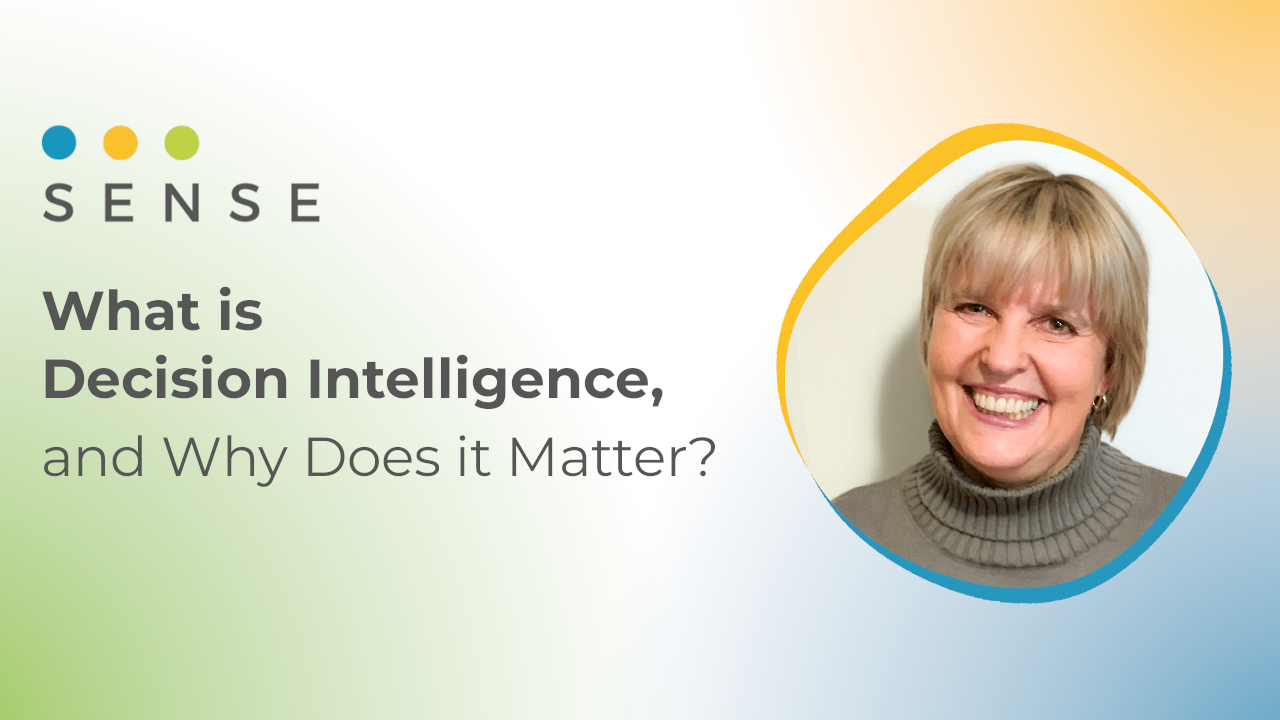What is Decision Intelligence, and Why Does it Matter?

We are living in an era of information overload and ever-increasing uncertainty about what is true and what is not. Historian and author Yuval Noah Harari recently noted, "Being able to tell the difference between what fiction is and what is reality is the most crucial skill, and we are not getting better as time goes on." We tend to quickly notice the susceptibility to fiction in others, yet often fail to apply the same rigorous scrutiny to our own assumptions. We are then faced with the persistent challenge of navigating biases that influence our decisions and actions.
So what is Decision Intelligence? Decision Intelligence is the ability to make informed, unbiased, and effective decisions, whether large or small. It is a critically important skill in the work environment, where daily decisions can have a dramatic impact on the health, culture, and profitability of an organization.
To develop the ability to make intelligent decisions, five skills are essential:
- Distinguishing between what is fact and what is opinion — knowing what you know, and what you don’t with accurate confidence.
- Accurately appraising risk by weighing the potential benefits and downsides of a decision.
- Remaining objective when making decisions.
- Creating and following decision rules that are true to you and appropriate to your context.
-
Navigating emotions — like anger, boredom, and fear — that can skew your perspective in the decision-making process.
The impact of emotions on decisions is often overlooked. Daniel Kahneman's research shows the effect that emotions have on decision-making: for example, the pain of a $1,000 loss feels equivalent to the pleasure of a $2,000 gain. Jennifer Lerner has shown that fear often leads to conservative choices, while anger drives riskier decisions. As leaders, we need to understand how specific emotions trigger specific decision biases, and then learn to leverage that knowledge rather than fall for emotional distortions.
References:
- Du Preez, M. M., Kriek, H. S., & Albright, J. (2020). Openness as Moderator between Feeling Bored and Managers' Decision-making Competence: A Study of Managers in the Retail Industry. In Emotions and Service in the Digital Age (pp. 193-216). Emerald Publishing Limited.
- Kahneman, D., & Tversky, A. (1982). The psychology of preferences. Scientific American, 246(1), 160-173.
- Lerner, J. S., & Keltner, D. (2001). Fear, anger, and risk. Journal of personality and social psychology, 81(1), 146.
- Harari, Y.H. (2024). How to think about complex problems https://www.youtube.com/watch?v=4tWyvpY9O3w

